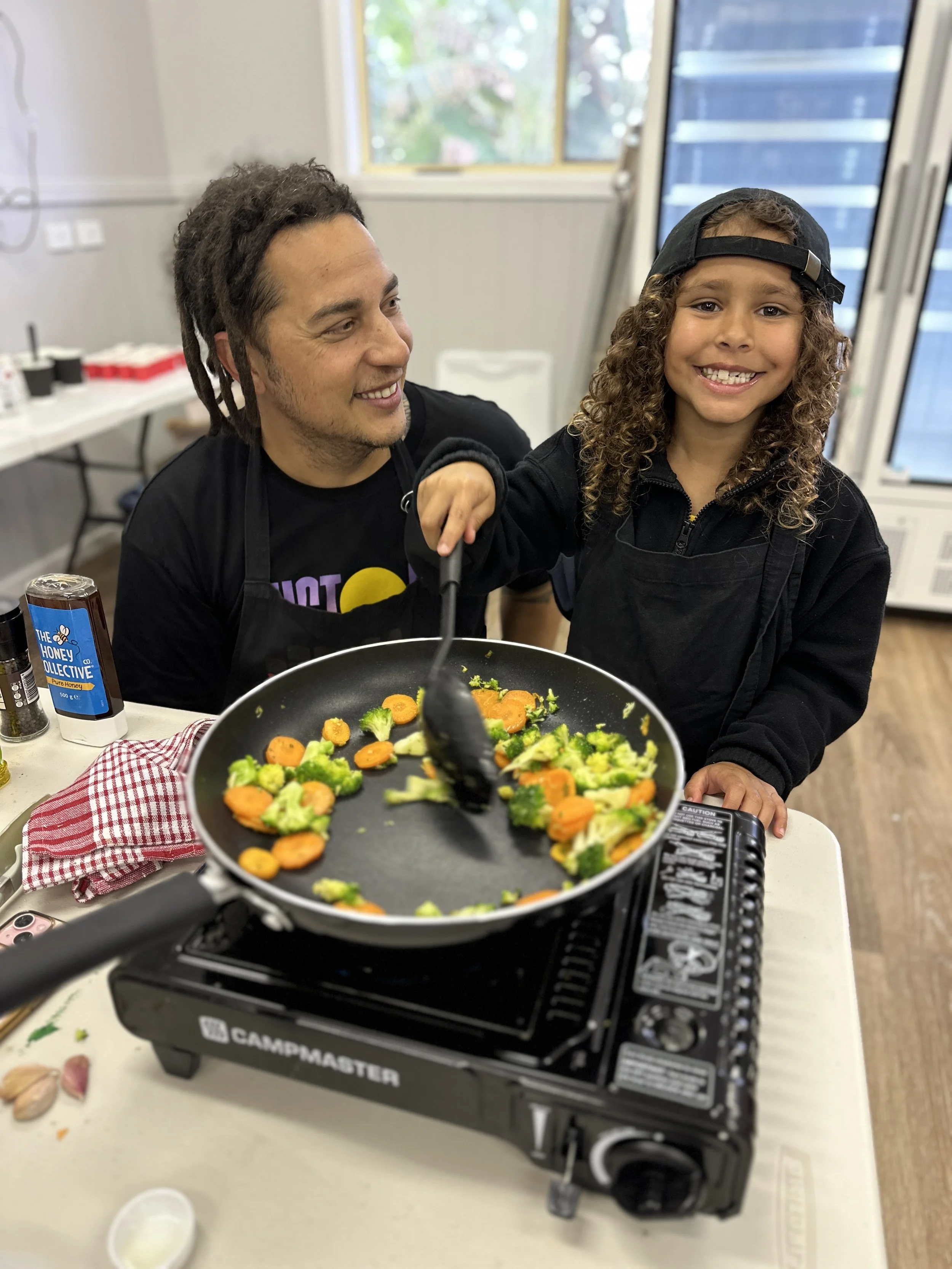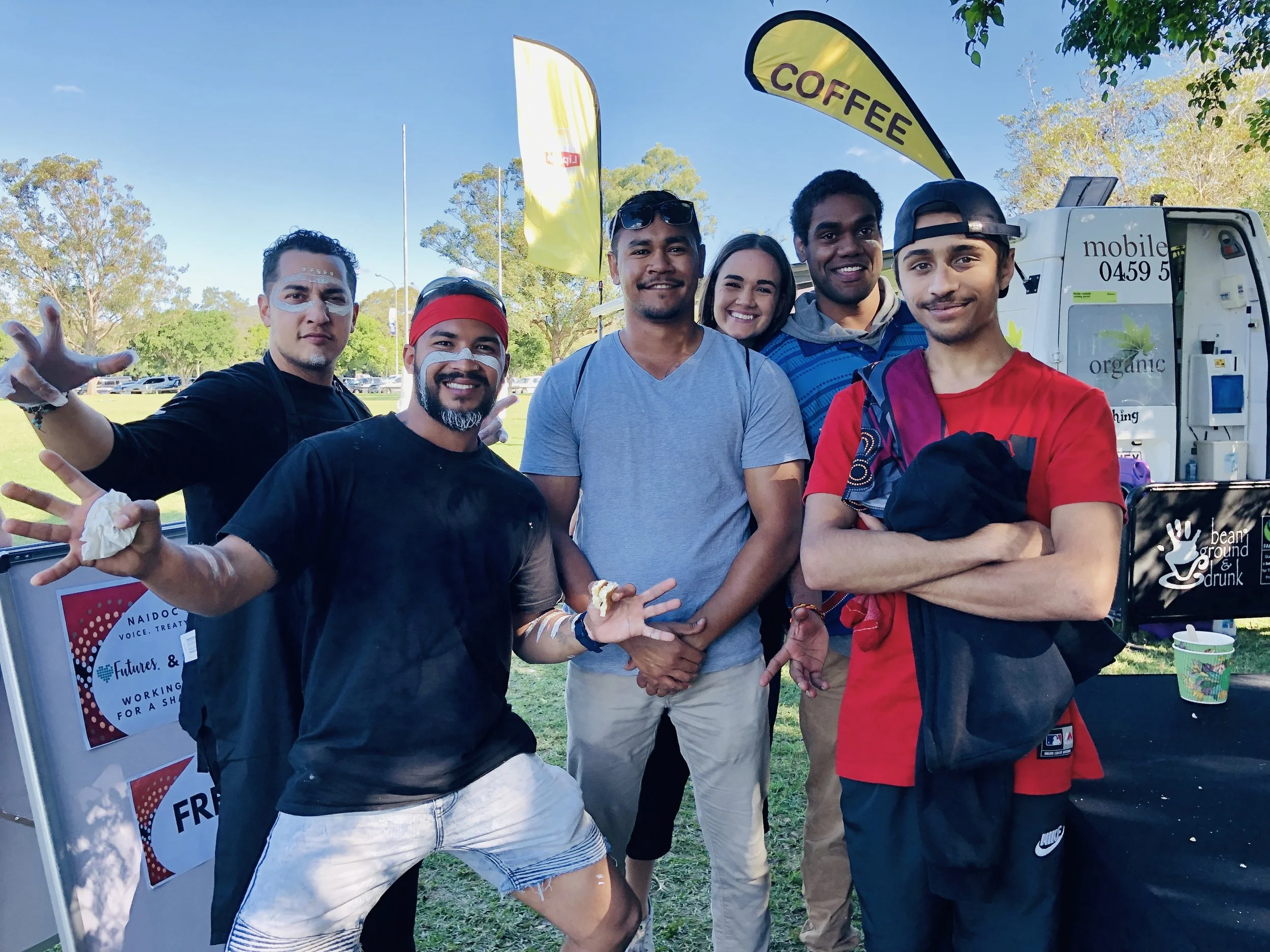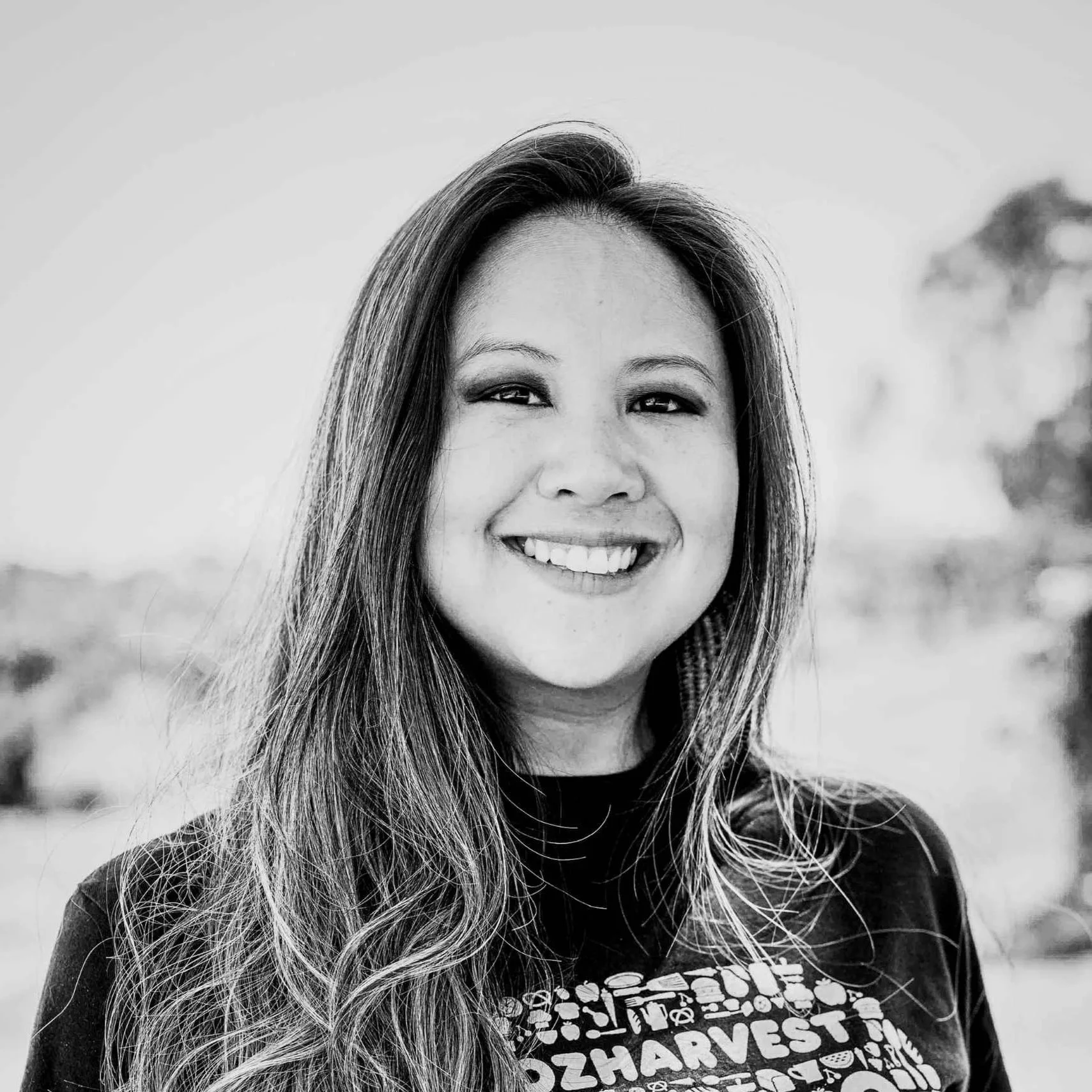Levi-Joel Tamou On Creating Food Security And Anchoring Purpose in Culture
Levi-Joel Tamou is a co founder of Indigenous Futures Foundation, a non profit with a mission to end the food crisis in First nation communities within our lifetime.
His Mob is from Kuku Yalanji Nation and Taranaki, Aotearoa and he now lives on Yugembeh Country on the Gold Coast.
Levi-Joel discusses the importance of reflection and understanding the change you want to bring to the community around you, and the importance of culturally conscious food security for rural First Nations communities.
Highlights from the interview (listen to the podcast for full details)
[Tom Allen] - To start off, can you share a bit about your background and what led to your passion in social enterprise and food security?
[Levi-Joel Tamou] - About eight years ago, I took my wife and three children up to visit our mob up in Kuku Yalanji nation in far north Queensland. There’s a small community called Hope Vale where we met a lot of our extended family, where English is a second language and a lot of our mob live in traditional old school cultural ways.
My grandfather was beginning to write his memoirs as a survivor of the stolen generation. One part that he shared was around struggles with mayi (food). When he was a young boy, he would go hunting with his father, brothers, and cousins, and food was plentiful. They were hunting kangaroo, fishing, and bush tucker and native berries were abundant. They lived off the land.
when he was around eight years old, he was taken away, removed from his family and taken to a small remote community in Central Queensland called Woorabinda. Food was used strategically as a weapon to enforce control. Being removed from their homelands, they were unable to hunt for food.
Now he talks about those past times of food crisis and how today, we have a new food crisis for very different reasons. Geographical isolation, high cost of food, systemic poverty, lack of access to cultural lands and hunting, and a variety of other reasons allows food crisis to still perpetuate today, particularly in remote First Nation communities.
I remember him giving me what was effectively a challenge. Would I consider dedicating my life to helping our mob with mayi? That conversation landed quite heavily with me. I had no background in this area as I was predominantly raised as a city blackfella. I didn't have much understanding of what our mob in remote communities had to endure on a daily basis.
I took about three months to reflect on this invitation for my grandfather. Really it was an invitation to reconsider the role I played within my family, my community, and my people.
At the time I was involved in chasing the money in construction and mining, but that wasn’t fulfilling for me. I really thought about who I wanted to become and I ultimately made the leap and decided I'd dedicate my life to this.
I quit my job and started my journey setting up a nonprofit charity in the food sector. The driving force for me was really seeing the challenges that our mob have to live with, seeing the cost of food, what it's like for families struggling to afford food, and the lack of joy at the family dinner table. That's what guides the work in our organisation Indigenous Futures Foundation and that's what drives me today.
Could you tell us more about your work with Indigenous Futures Foundation and Love Ya Corporate Catering and the plans for the future?
Love Ya Corporate Catering is an initiative of Indigenous Futures Foundation, and it seeks to leverage and maximise the goodwill within the Australian community, the Australian government, and big business around allocating budgets towards procurement from Indigenous organisations.
For the first seven years of our small nonprofit Indigenous charity, we were bootstrapping and working with other partners to get more food and cooking programs out there.
We realised if we want to grow, be sustainable, and really aspire to the change we seek, then we need to change. We couldn’t keep accepting handouts and looking for donations and free food to pass on. We needed to establish ourselves and segue into a social enterprise.
The question was how do we become a part of that market and ascertain the goodwill that exists within the broader Australian corporate community, and how can we leverage these Indigenous procurement budgets and contracts?
We were sitting around our family dinner table. We’d ordered Uber Eats and we're brainstorming what can we do in the food space that's authentic to who we are. It was one of my sons who said, “Hey dad, why don't you just do an Uber Eats blackfella style?” That was really the seed that started us thinking about what we can scale, utilise goodwill, while also focusing on what's truly important for us. That was the genesis of launching Love Ya Corporate Catering.
As an AMP Foundation Tomorrow Maker, you're getting support to develop and grow Love Ya. What have been your reflections and learnings from the support to date and how might some of that be applicable to other founders who are growing or starting a social enterprise?
First of all, I want tip my hat to the AMP Foundation. I’m tremendously grateful for their support and believing in us.
The Tomorrow Makers program really goes beyond business development per se. There's a lot of different programs out there and what I've come to discover and love about the AMP Foundation Tomorrow Maker program is it not only invests in the individual financially with mentoring, support, and capacity building, but there's a genuine deeply rooted care for us as individuals.
How are you going this month? How's the family? How's life? How's your wellbeing? These are not typical in incubator or business programs that are twelve months long or so. It's a bit of a cliché but I feel like I'm really part of a family that deeply cares beyond business outcomes, and that's quite refreshing.
The learnings I've had are that getting tremendous support around negotiations, systems development, and being around others who are high-level, capable individuals really sharpens you. I'm loving the peer support, and I've made some new friends, which is wonderful.
Sometimes the road of being a founder, bootstrapping and on the grind, can be quite a lonely burden you have to carry when you're so determined. To be surrounded with a family of social entrepreneurs who are going through a different version of that journey- it's a good way to do life.
What are some of the barriers you've come up against as a First Nations led organisation in getting up and running, and where do you see opportunities to better support similar types of businesses?
I think that barriers and challenges are, across the board, irrespective of cultural background.
Certainly, being a First Nation start-up there are some additional challenges that we have to mitigate, particularly in terms of perception and optics from government. It's changing, but there's a fundamental belief that blackfellas don't have the capability to execute, administrate, and become sustainable. We're always fighting against that.
However, I don't really like to dwell on that mindset. I think the challenges and the barriers are there for everyone. It's really about how you grow as a person and how you maintain your joy in struggle and embrace those pain points that’ll ultimately grow you. There's a lot of opportunities out there.
What I'll say to my nephews and nieces is to stop complaining. Stop playing the victim.
We now live in a time where our elders endured unprecedented barriers and challenges so that we now have opportunities at our fingertips. The way that we honour our elders and those gone before us is to be good stewards of what we have been given now. We have to take advantage of the opportunities that exist so we can improve our family's lives and our children and our children's children. So, no complaining. Get to work.
You also can’t pull the blackfella card just to get ahead. We need to be merit based. We need to excel at what we do. We need to be people who honour our commitments. That's the message I give to my young nephews and nieces thinking about starting their own business or social enterprise.
What broader advice would you give to those on this journey of starting a purpose driven organisation?
Going back to my grandfather and his invitation, to me it was ultimately one question. Who do you want to be? That one question changed the trajectory of the vision I had for my life.
Without a clear vision of who you want to become and the impact you want to make in the world, you can get distracted and go off course. You might try to find the easy way out or give up. That happened to me multiple times throughout my journey.
If you have a crystal-clear understanding of who you want to be, who you need to become, and the impact you want to create in your family, community, even nation, then you need to get very clear on that one question. That's what I'd encourage our listeners to take some time out to consider. For me, it meant going to the ocean and daydreaming about how this life we have just goes so fast. We need to focus on valuing the time we have and being good stewards of it.
What inspiring projects or initiatives have you come across recently creating a positive change?
There are so many, and I may fail some friends if I leave them off the list, so I'll just say this. One organisation I don't have a personal relationship with, but I look from afar and I find them really aspirational in how they do things and the impact they're creating, is an organisation called Charity: Water. They’re based in New York, but they build wells in third world countries for communities living in very remote areas without access to daily drinking water.
I look from afar at Charity: Water and what they do and how they do it is, for me, the top tier. One thing they do very well is how they’ve become masters in the art of creating trust with their stakeholders and their community.
I've come to learn that trust is a real business economic indicator. People talk about this notion of how the speed of trust helps fast track your business because things get done a lot faster when trust is established.
Charity: Water does one thing in terms of their books and their finances that cements this. They have live audited books for public view. If you want to audit them or see how they're spending their money, it's all there to be seen front and centre. They also have an account for general operations and another for their donations and things like that. It’s all very transparent, so as a donor, an investor, or a sponsor, you know your money is being spent well.
I've never seen an organisation do that before. I think if a lot of our mob here in Australia can do better in various areas of building trust with customers, stakeholders, and investors, that uplifts everyone on the journey. That's something we're looking at in how we can do this better. I believe Charity: Water is a great example of what we can all do, and that self-reflection will let us see how we can get better at building trust with the people we care about and those that care about us and our work.
To finish off, what books or resources would you recommend to our audience?
I am an Audible fiend. I’ve always got a book running when I'm doing our community food runs. There are two books I've just finished, but I should preface that I wasn’t reading them because I aspire to their values or their point of view. Really, I read these two books so I can become more astute in business and not be deceived or taken advantage of.
They're two books by a guy called Robert Greene. The first is The 48 Laws of Power and the other is The 33 Strategies of War. If you've heard of Sun Tzu’s The Art of War, it’s similar to that, but with more of a business focus.
I'll warn you, they are not easy reads. They will likely grind against your very fabric of who you are. However, they will teach you how to not be deceived and to develop discernment. Ultimately, they’ll make you a lot wiser as to not deploy these tactics, but to ensure they are not deployed against you.
They were very heavy reads for me and I came out of it remarking at some of the ugly stuff in there. We're talking war and deflection. I do think those books are important to fortify us against those that would seek to rip us off, because the reality is, it doesn't matter whether you're in social enterprise, the non-profit world, or for-profit, it’s important to grow your own discernment.
Initiatives, Resources and people mentioned on the podcast
Love Ya Corporate Catering
Recommended books
The 48 Laws of Power by Robert Greene
The 33 Strategies of War by Robert Greene
The Art of War by Sun Tzu








